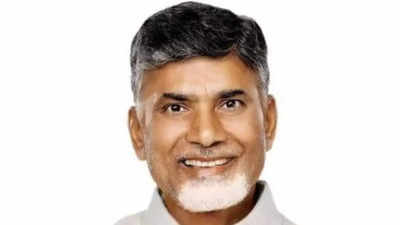NEW DELHI: Andhra Pradesh chief minister N Chandrababu Naidu on Monday once again raked up the declining birthrates issue and warned against following the path of South Korea and Japan, where population growth has significantly decreased.
He urged for household discussions regarding birthrate and population management. “We should not repeat the mistakes committed by other countries and be careful. Kuppam has also come to 1.5 (birth rate). It should be above two but has come to 1.5, which means it is decreasing. South Korea plummeted to 0.9 (birth rate) while Japan is facing even bigger issues,” Naidu stated whilst introducing the Kuppam Vision-2029 document in Chittoor district, intended for comprehensive constituency development.
Naidu, who represents Kuppam in the assembly, launched ‘Swarna Kuppam’, similar to the state-level initiative SwarnaAndhra@2047.
The CM criticised couples who avoid having children to preserve their wealth for personal indulgence. “Had your parents also thought like that, would you have come into this world now? Everybody should have clarity on this matter,” he said, and reminded that childlessness was previously considered socially unacceptable, emphasising the importance of societal continuity.
In October, Naidu had discussed the necessity of population management in Andhra Pradesh, considering the projected increase in elderly citizens post-2047, following the current demographic dividend period.
The Kuppam Vision-2029, incorporating ‘Padu Sutralu’, aims for poverty elimination through employment generation, population management, skill development, water security, agricultural advancement, and technological integration.
Additionally, Naidu inaugurated a pilot project of PM Surya Ghar: Muft Bijli Yojana in Nadimuru village, Kuppam constituency. The scheme provides fully subsidised solar panels to households, with plans for state-wide implementation.
The programme offers Rs 30,000 per kilowatt subsidy, limited to 2 kilowatts. A 2-kilowatt solar unit, costing Rs 1.2 lakh, can generate 200 units monthly, allowing for self-consumption and grid supply. Naidu highlighted that solar and wind power prioritisation would reduce electricity costs.




